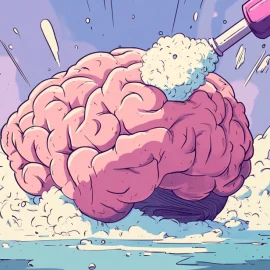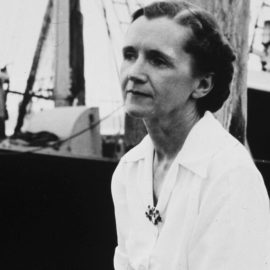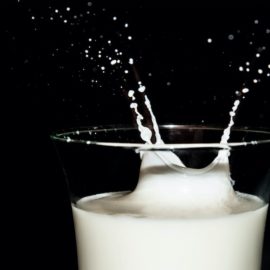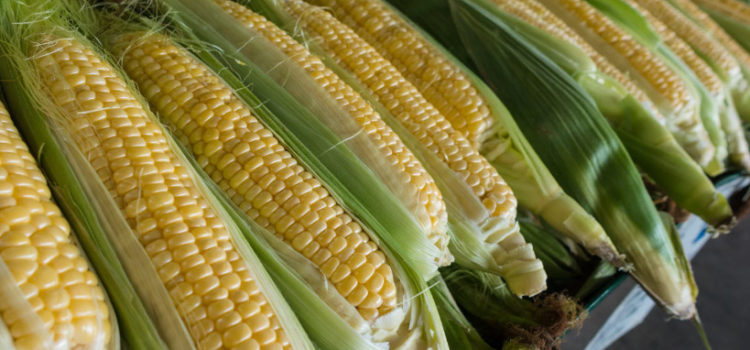
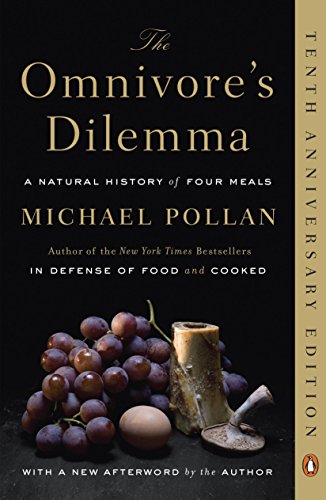
This article is an excerpt from the Shortform summary of "The Omnivore's Dilemma" by Michael Pollan. Shortform has the world's best summaries of books you should be reading.
Like this article? Sign up for a free trial here .
Worried about whether corn makes you gain weight or makes you fat? Short answer: it really can. Learn more about why, and how to avoid gaining weight when eating corn.
We Eat a LOT of Corn
We are what we eat, which for Americans is mostly processed corn.
This can actually be quantified. A scientist can tell which type of plant — corn, wheat, soy — created a given carbon atom in a human bone, and can therefore determine the composition of a person’s diet by their remains. Carbon atoms created by corn are different, and their presence indicates how much corn was in a person’s diet.
Americans eat more wheat than corn outright — 114 pounds wheat flour a year, versus 11 pounds of corn flour. But Americans, compared to Mexicans, have diets much higher in corn, because of all the processed corn we eat in various forms. (Mexicans eat grass-fed as opposed to corn-fed beef, and use cane sugar instead of corn syrup as a sweetener.)
Fattened by Corn
Does corn make you fat? It seems the answer is yes.
Our consumption of so much corn in unhealthy forms, especially high-fructose corn syrup, has helped create an epidemic of obesity in the U.S.
There are striking parallels between our obesity problem and the epidemic of alcoholism in 19th century America. The latter was also driven by excess corn, which was turned into cheap corn whiskey.
In the early 19 century American farmers, especially in the fertile Appalachians, were producing too much corn. Transporting it over the mountains to sell more widely was difficult and expensive. Like today, the way to use up the surplus of cheap corn was to process it. They distilled it into alcohol, and corn in this value-added form was easier to transport.
Americans began drinking more than they had before or have since. This created the public health epidemic of its day. The typical American drank more than a half-pint of corn whiskey a day (five gallons of spirits a year, compared to less than one today). The coffee break began as a late-morning whiskey break.
The overconsumption resulted in public drunkenness, violence, family breakups, and alcohol-related diseases. Several of the nation’s founders, including George Washington, decried America’s transformation into “The Alcoholic Republic.”
The Alcoholic Republic has been replaced today to The Fat Republic. We’re eating excessively today, as we drank then, for some of the same reasons. So does corn make you fat? Yes.
Obesity has become our greatest public health problem:
- Three in five Americans are overweight; one in five is obese. Children have a one in three chance of developing diabetes.
- As a result, today’s children may be the first generation of Americans whose life expectancy is shorter than that of their parents.
- Obesity also is spreading globally, with “overnutrition” surpassing malnutrition.
Since 1977, an American’s average daily consumption of calories has jumped 10 percent. The additional calories came from the farm and make you gain weight.
Rising obesity rates started in the 1970s with the advent of the cheap-food farm policy and the elimination of programs to stem overproduction. Since the Nixon administration, farmers have produced 500 additional calories per person per day — up from 3,300, which was already much more than we need.
Today’s parallels with the Alcoholic Republic are:
- A health problem starts with a mountain of cheap corn.
- To get rid of it, corn is processed into a more profitable, higher-calorie product.
Corn Making You Gain Weight in a Meal
The industrial food chain meal consumed for this book began with corn grown on an Iowa farm. At the opposite end of the food chain, it was prepared by McDonald’s and eaten in a car by the author, his wife, and son.
The meal consisted of:
- Cobb salad
- Classic cheeseburger, large Coke and large fries (32 oz, only 30 cents more than the “small” size of 16 ounces)
- Chicken McNuggets, a double-thick vanilla shake, large fries, dessert of freeze-dried pellets of ice cream
The cost was $14 total for three people, and it was ready in four minutes. It was derived from an estimated six pounds of corn, totaled 4,510 calories, and was eaten in under 10 minutes.
Corn was The Chief Ingredient
For instance, 13 of 38 ingredients in a chicken nugget are derived from corn, starting with the corn-fed chicken. It also contains completely synthetic ingredients from petroleum or chemicals (a preservative used is derived from butane).
The author had the meal analyzed for corn content via mass spectrometer, which verified corn’s central place in fast food:
- Sodas: 100 percent corn
- Milk shake: 78
- Salad dressing: 65
- Chicken nuggets: 56
- Cheeseburger: 52
- French fries: 23
Fast Food Life
Convenience was a central feature of the fast-food meal, and is a key selling point of all fast food (19 percent of American meals are eaten in a car). The chicken nugget is convenient, waste-free, needs no plate or utensils, can be eaten with one hand, and is automobile-friendly (salads are still a challenge).
———End of Preview———

Like what you just read? Read the rest of the world's best summary of Michael Pollan's "The Omnivore's Dilemma" at Shortform . Learn the book's critical concepts in 20 minutes or less .
Here's what you'll find in our full Omnivore's Dilemma summary :
- What does Omnivore's Dilemma mean?
- Why is industrial farming so bad for you and the environment?
- How did corn and its byproducts (like corn syrup) end up in tens of thousands of foods?
- How is Industrial Organic food like at Whole Foods not much better than massive industrial farming?
- What happens when you try to forage for your own food?


